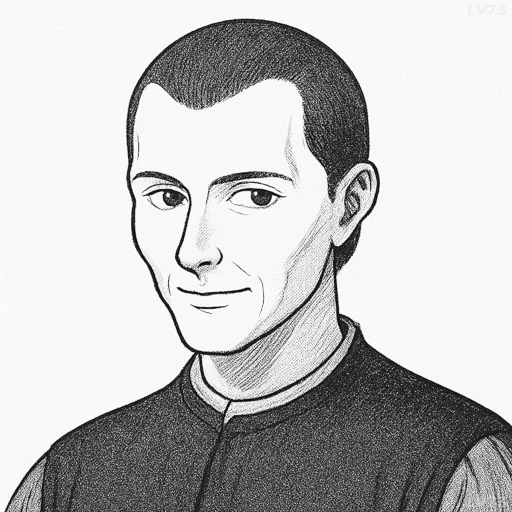“Nature that framed us of four elements, warring within our breasts for regiment, doth teach us all to have aspiring minds.”

- May 3, 1469 – June 21, 1527
- Born in the Republic of Florence (Italy)
- Political thinker and diplomat
table of contents
Quote
“Nature that framed us of four elements, warring within our breasts for regiment, doth teach us all to have aspiring minds.”
Explanation
In this quote, Niccolò Machiavelli reflects on the nature of human beings and the intrinsic ambition that drives individuals. He suggests that humans are composed of the four classical elements—earth, air, fire, and water—which, in their conflict or balance within the human soul, lead to the formation of aspirations and desires. This internal struggle, described as “warring within our breasts,” is the source of human ambition and the drive to overcome or control one’s circumstances. The phrase “for regiment” suggests that this inner conflict pushes individuals to seek order or dominion over their lives, perhaps by aspiring to power, status, or greater control.
Machiavelli was deeply interested in human nature, which he saw as fundamentally self-interested and driven by the desire for power and achievement. His works often emphasize that, in a world where individuals are constantly competing for limited resources and recognition, ambition is not only natural but an essential part of human existence. This ambition, however, can lead to conflict or instability if not properly channeled, and Machiavelli frequently explored the ways in which rulers could harness or manipulate human ambition to secure political power. For example, in The Prince, Machiavelli suggests that a ruler must understand the motivations of the people, including their aspirations, and use this understanding to control and manipulate society.
In modern contexts, Machiavelli’s view on human nature and ambition still holds relevance, especially in the fields of psychology, politics, and business. Individuals often act out of a desire to improve their status or position, which can fuel both creative innovation and ruthless competition. In corporate environments, for instance, ambition drives employees to advance their careers, sometimes leading to conflict or ethical compromises as people strive to outperform their colleagues. In politics, leaders often appeal to the ambitions of the masses, offering promises of power or improvement in order to garner support. The internal conflict Machiavelli refers to in his quote mirrors modern debates about self-interest, power dynamics, and the struggle for control that characterize much of human interaction.
Would you like to share your impressions or related stories about this quote in the comments section?

